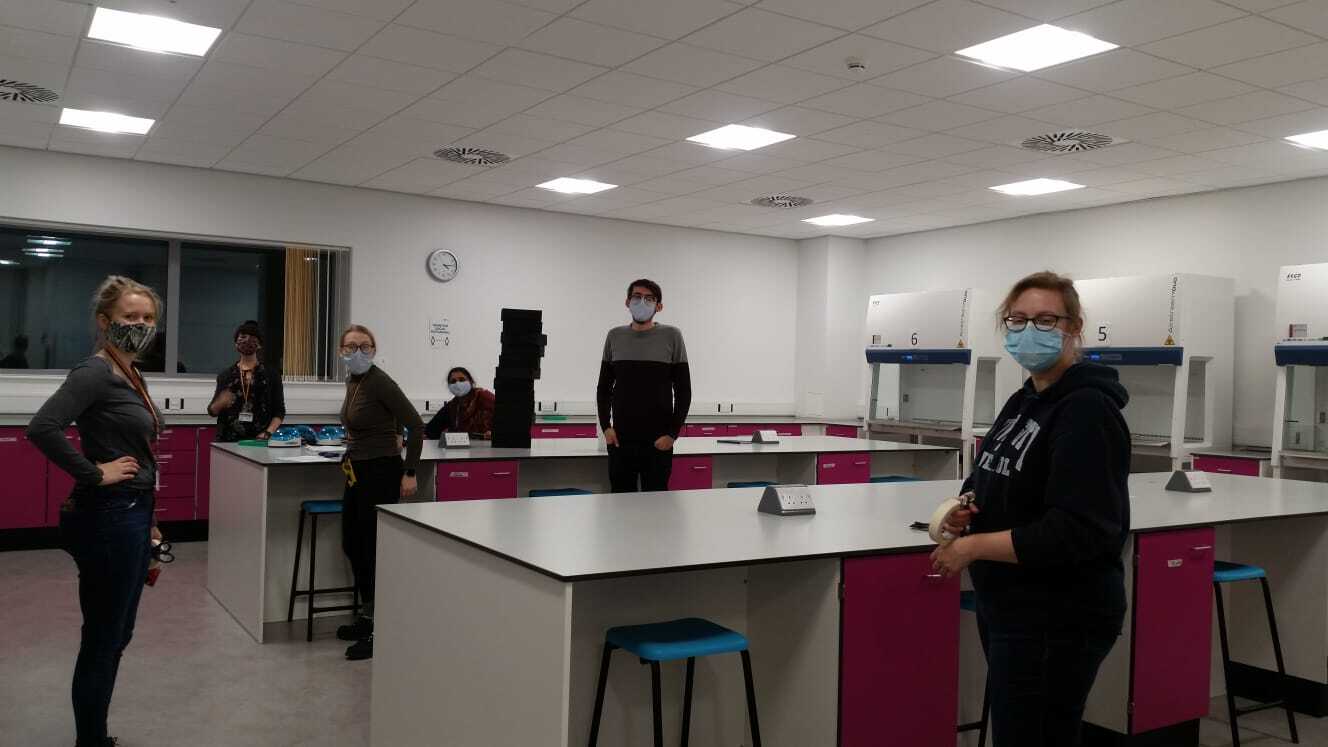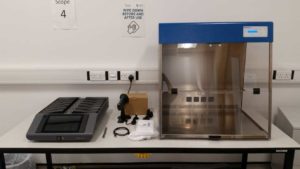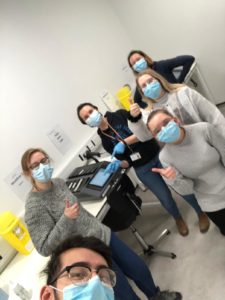Amy Stonadge (nee Brown) is a PhD student at the University of York who took part in a 3-month placement in the new COVID-19 LAMP Labs at the University of York. The LAMP Labs are a new collaboration between the University, Capita and the NHS and are working to establish a COVID-19 testing laboratory for frontline NHS staff. Read on to find out more about Amy’s PIPS experience!
What did you do?
As a team we facilitated the running of the facility and helped define the roles of the lab technicians which shaped how the facility would be run.
We were involved in high level discussions regarding how the initial process could be restructured to enable maximum efficiency, and also were relied upon to provide feedback on what equipment and personnel were necessary to improve the process.
I then went on to help process and test samples for the NHS using SOPs we helped to create, and GLP sufficient to work in a category 2 laboratory.
What made you want to do that particular placement?
I really wanted work experience in a clinical setting and this was the perfect opportunity. Not only did I have the opportunity to develop GLP, but I was also able to see just how stringent the regulations are for developing a new diagnostic assay for clinical applications. Despite this placement being of great benefit to me and my future career, I also wanted to do a placement that had meaning and would benefit more than just myself. This role was considered very important in the effort to prevent the spread of COVID-19 within the NHS staff of North and East Yorkshire. In doing my placement here, I felt I had contributed towards the National effort to prevent the spread of COVID-19 and therefore preserve life.
How did you go about finding and planning your PIPS?
I hadn’t really put much thought into where I wanted to go for my PIPS, with the exception of knowing that I wanted to stay local to York. I think this was made difficult due to COVID restrictions for travel and the lack of places available for hands-on experience as opposed to remote working.
I received a global email asking for applications for the role of lab technician in the new COVID-19 LAMP Labs at the University of York. This made me think to enquire whether they would take on volunteers for a 3-month placement. Luckily, I was accepted from the very beginning and so was able to help set the lab up and observe the processes from the start.
What have you gained from doing your PIPS?
I have definitely developed an awareness of the complexities and difficulties around setting up a new lab, and working with multiple partners, from academia, industry and NHS. I learned of the importance to attention to detail for highly repetitive processes for precision of results. I also learned just how important it is to have a great team around you for support, for when the job gets tough and stressful. This developed my individual and team-working skills a lot more than expected. Using this experience, I aim to develop further the skills and competencies and putting them into practice when adapting to new work environments and protocols.
How would you sum up your PIPS experience?
Extremely valuable. Despite being frustrated at times with how limiting bureaucracy is with changing certain practices, it was definitely a very rewarding and fulfilling placement to know that you are making a difference for so many people. It was very enlightening and an experience which has revealed more to me about my character and aims in life than I had anticipated.
What advice would you give to other PGRs about PIPS?
I wouldn’t worry too much about making sure you find a placement early. I would keep your options open and eyes peeled for a PIPS that really resonates with you. There’s no point doing a placement for the sake of it. Find one that gives you purpose and has meaning. You don’t know what you will enjoy until you give it a go.



